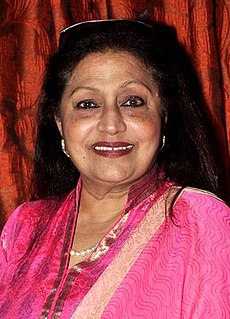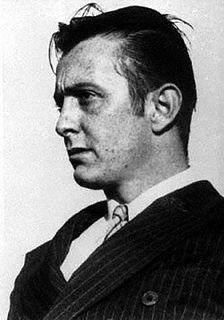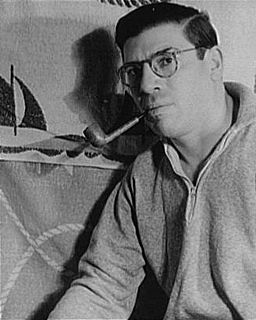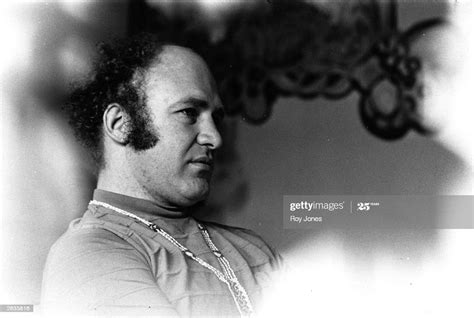A Quote by Quentin Tarantino
When I'm writing in my bedroom, in a bar, at my kitchen table or wherever, I'm conjuring it all up on the page. That's all well and good, but it is going to be a limited perspective at that point and time. Occasionally, what I write might read really well initially, but then you change your mind while hunting for locations when you discover settings which offer even better opportunities for drama or dramatic staging.
Quote Topics
Bar
Bedroom
Better
Change
Conjuring
Discover
Drama
Dramatic
Even
Going
Good
Hunting
Initially
Kitchen
Kitchen Table
Limited
Limited Perspective
Locations
Might
Mind
Occasionally
Offer
Opportunities
Page
Perspective
Point
Read
Really
Settings
Staging
Table
Then
Time
Up
Well
Wherever
Which
While
Write
Writing
Your
Related Quotes
As a writer, I haven't delved into dramatic writing. As an actor, I could always, even more so than comedy, do drama. When you do your comedy and your drama, your acting style doesn't change. If it's a comedy, the situations and the characters might be a little funnier, but you're just trying to be honest.
It's not possible to advise a young writer because every young writer is so different. You might say, "Read," but a writer can read too much and be paralyzed. Or, "Don't read, don't think, just write," and the result could be a mountain of drivel. If you're going to be a writer you'll probably take a lot of wrong turns and then one day just end up writing something you have to write, then getting it better and better just because you want it to be better, and even when you get old and think, "There must be something else people do," you won't be able to quit.
Listen closely. There’s a remote possibility that you might learn something: First, I don’t give a damn if my work is commercial or not…I’m the writer. If what I write is good, then people will read it. That’s why literature exists. An author puts his heart and guts on the page. For your information, a good novel can change the world. Keep that in mind before you attempt to sit down at a typewriter. Never waste time on something you don’t believe in yourself.
It is only when you open your veins and bleed onto the page a little that you establish contact with your reader. If you do not believe in the characters or the story you are doing at that moment with all your mind, strength, and will, if you don't feel joy and excitement while writing it, then you're wasting good white paper, even if it sells, because there are other ways in which a writer can bring in the rent money besides writing bad or phony stories.
But at some point, you know that - you know what poem keeps going through my mind is, "first they came for the Jews." People, all of us, are like, "Well, this news doesn't really affect me." "Well, I'm not a bondholder." "Well, I'm not in the banking industry." "Well, I'm not a big CEO." "Well, I'm not on Wall Street." "Well, I'm not a car dealer." "I'm not an auto worker." Gang, at some point, they're going to come for you!
I didn't mind writing incoherently, up until about 1980, occasionally. But after that, I decided, might as well be articulate. And I found, though, that writing poetry affected my prose to the point where I never again wrote in one draft, and my prose just took longer and longer and longer. It took longer and longer to come up with an acceptable text. And that's probably one of the reasons that my output has slowed down.
I'm always reading many books at a time. It might be quite unorthodox, but what I do is, since I'm always surrounded with books, I'll read a page of physics, and then I'll read a chapter of a novel that I really love, and then I'll say, "Oh well, what does that mixture do in my head?" I adore reference books. I love encyclopedias. I also like just going back to original texts, because a lot of these self-help books today.
While writing is a mystical process, it's also work. If you show up to work five days in a row, nobody's going to pat you on the back - everyone does that. Well, do that with your writing. Just show up. Be there for it. When you get an idea, write it down somewhere and then be a steward of that idea.
By the time we see that climate change is really bad, your ability to fix it is extremely limited... The carbon gets up there, but the heating effect is delayed. And then the effect of that heat on the species and ecosystem is delayed. That means that even when you turn virtuous, things are actually going to get worse for quite a while.
When you spend so much time trying to father well, and failing, and trying again, and hopefully failing better, it's going to seep into your work. And when you give yourself permission to explore the grottiest bits of your psyche (like Louis CK) (who totally stole that move from me) (not really), to exaggerate the edge of the rustiest blades of your IRL mind, you'll occasionally come up with something that holds real power.
With non-fiction writing I feel like I'm confined and driven by what actually happened. That makes the "plot". So it's a process of getting all of my notes typed up, then scanning through the notes, trying to extract or find certain vignettes that seem like they might write well - that might have a potential for good energy, shape, etc. And then at some point I start stringing these together, keeping an eye on the word count.







































